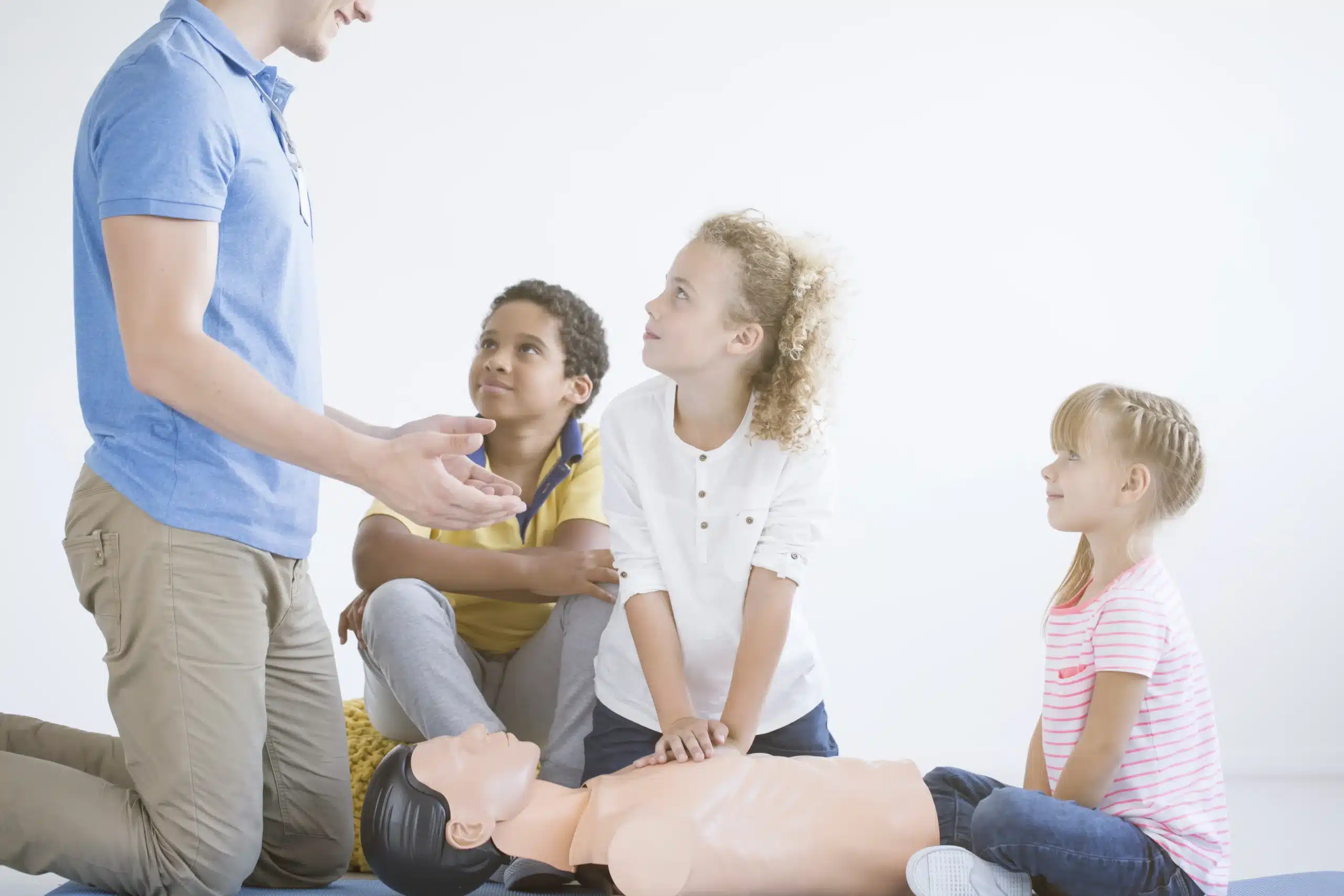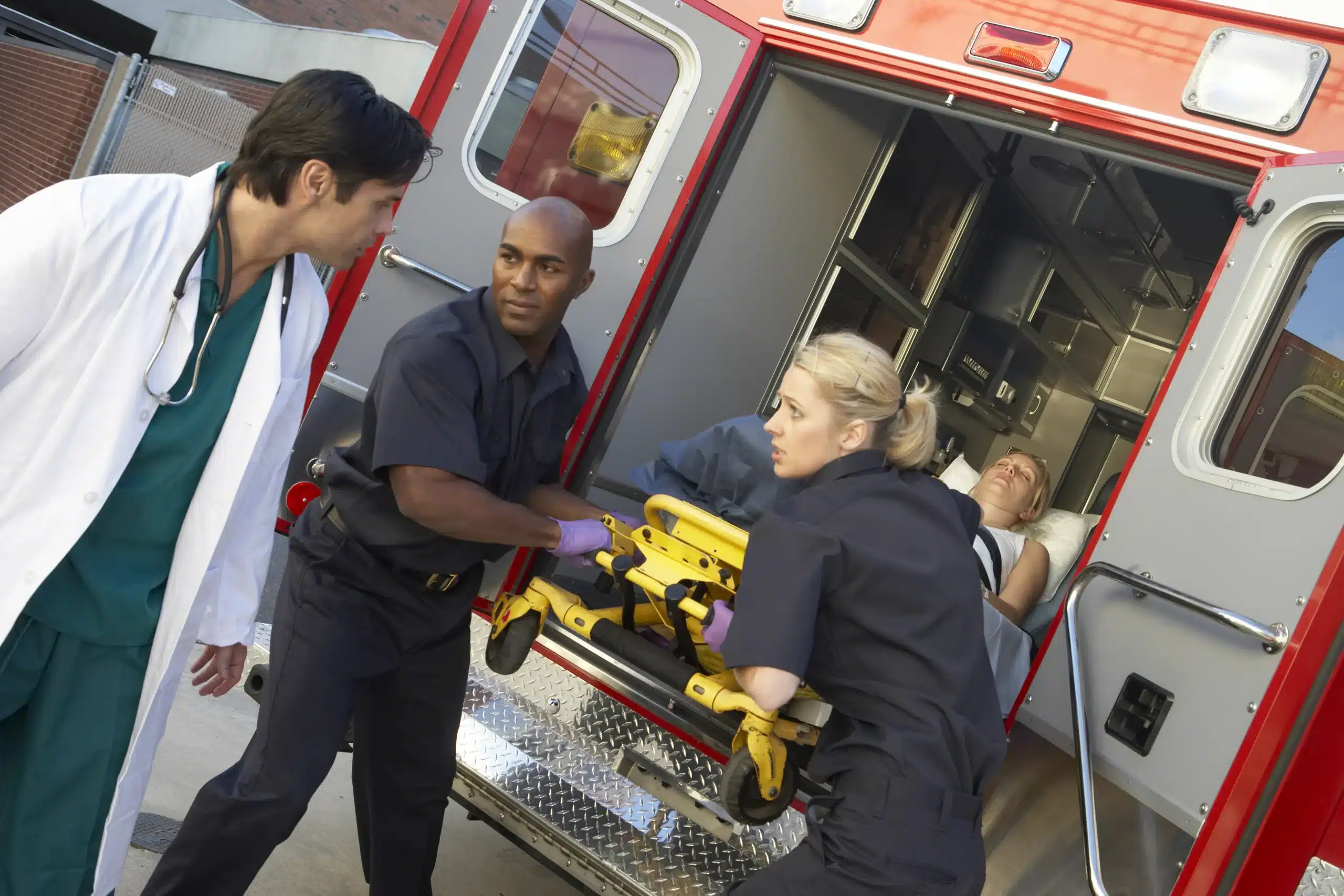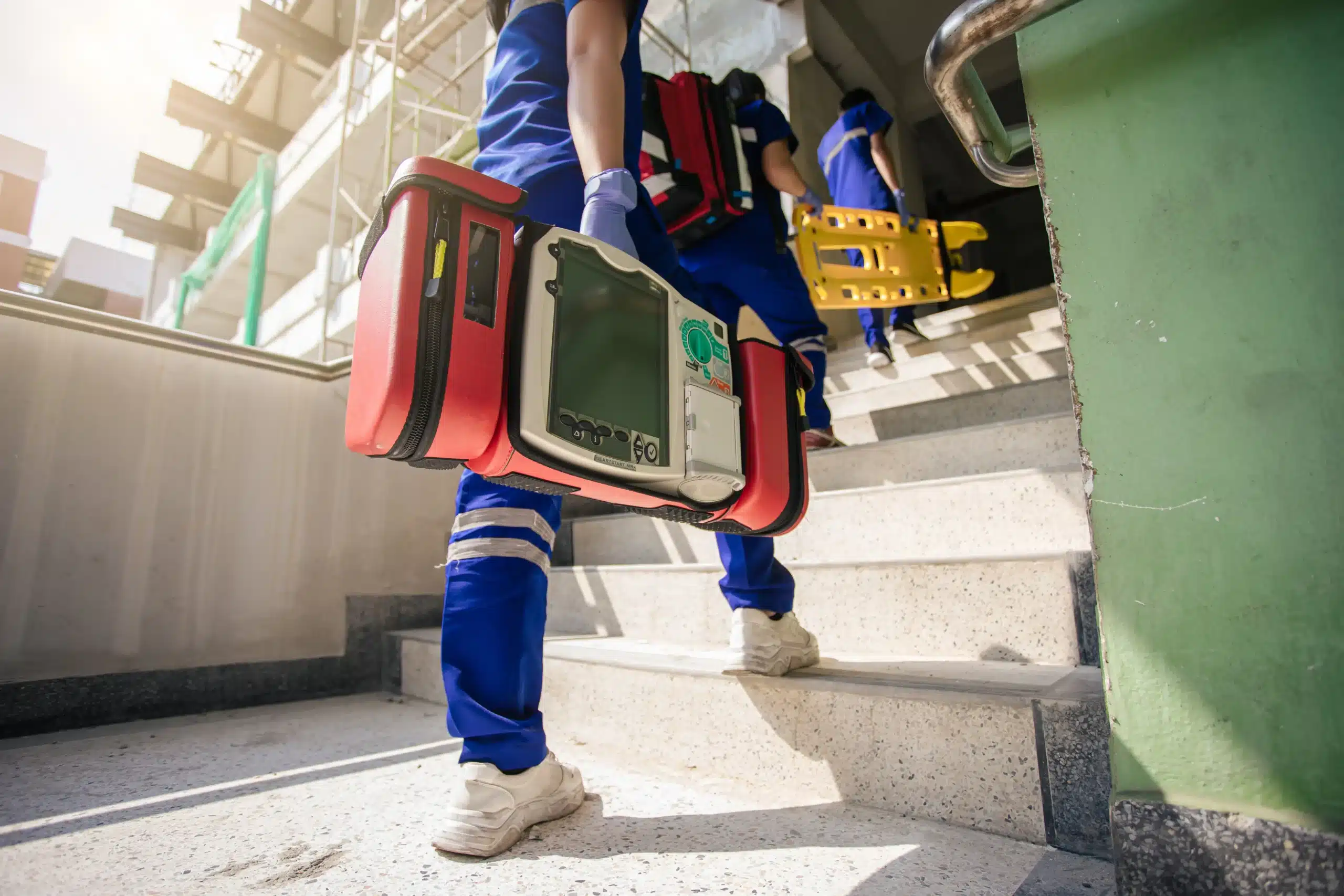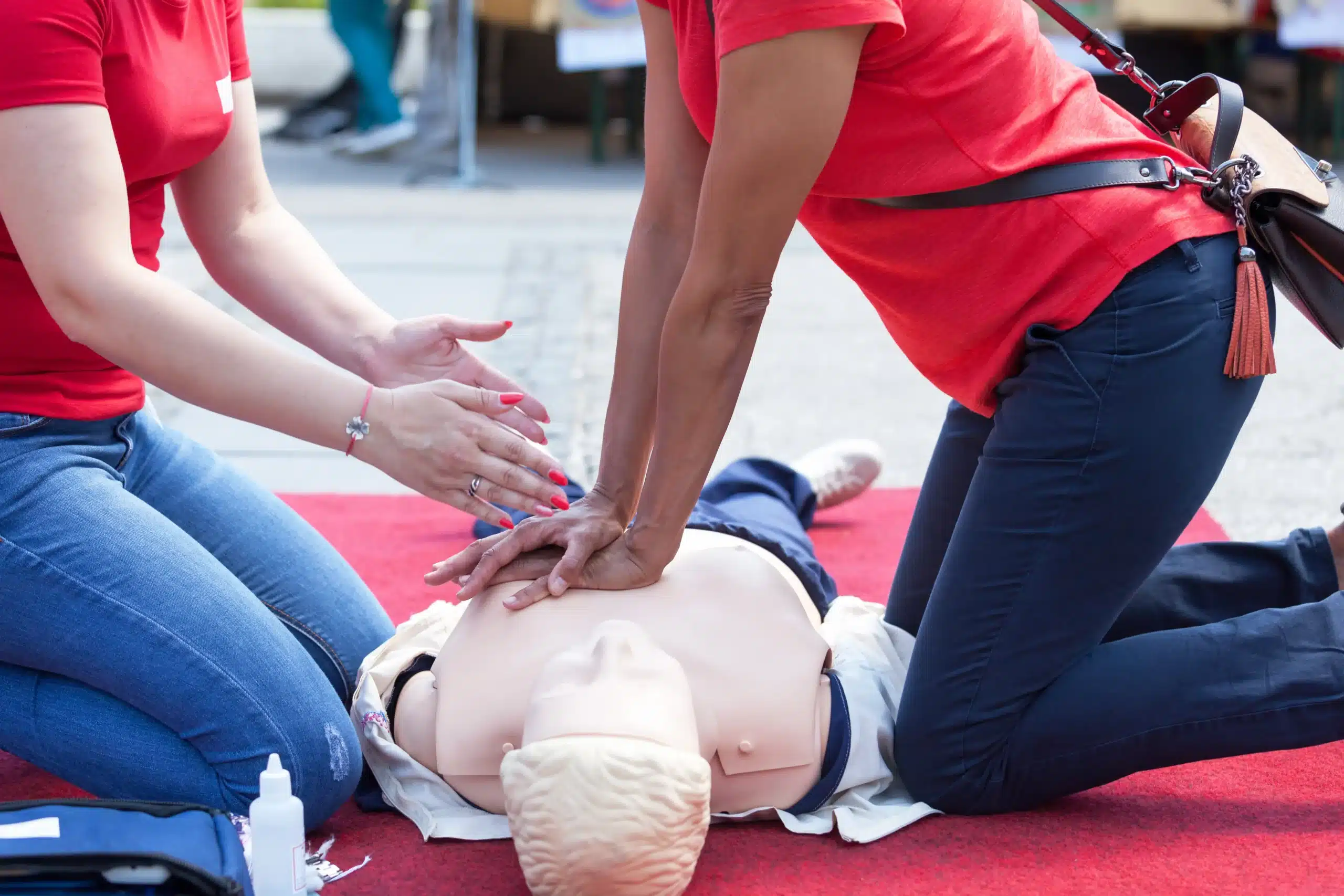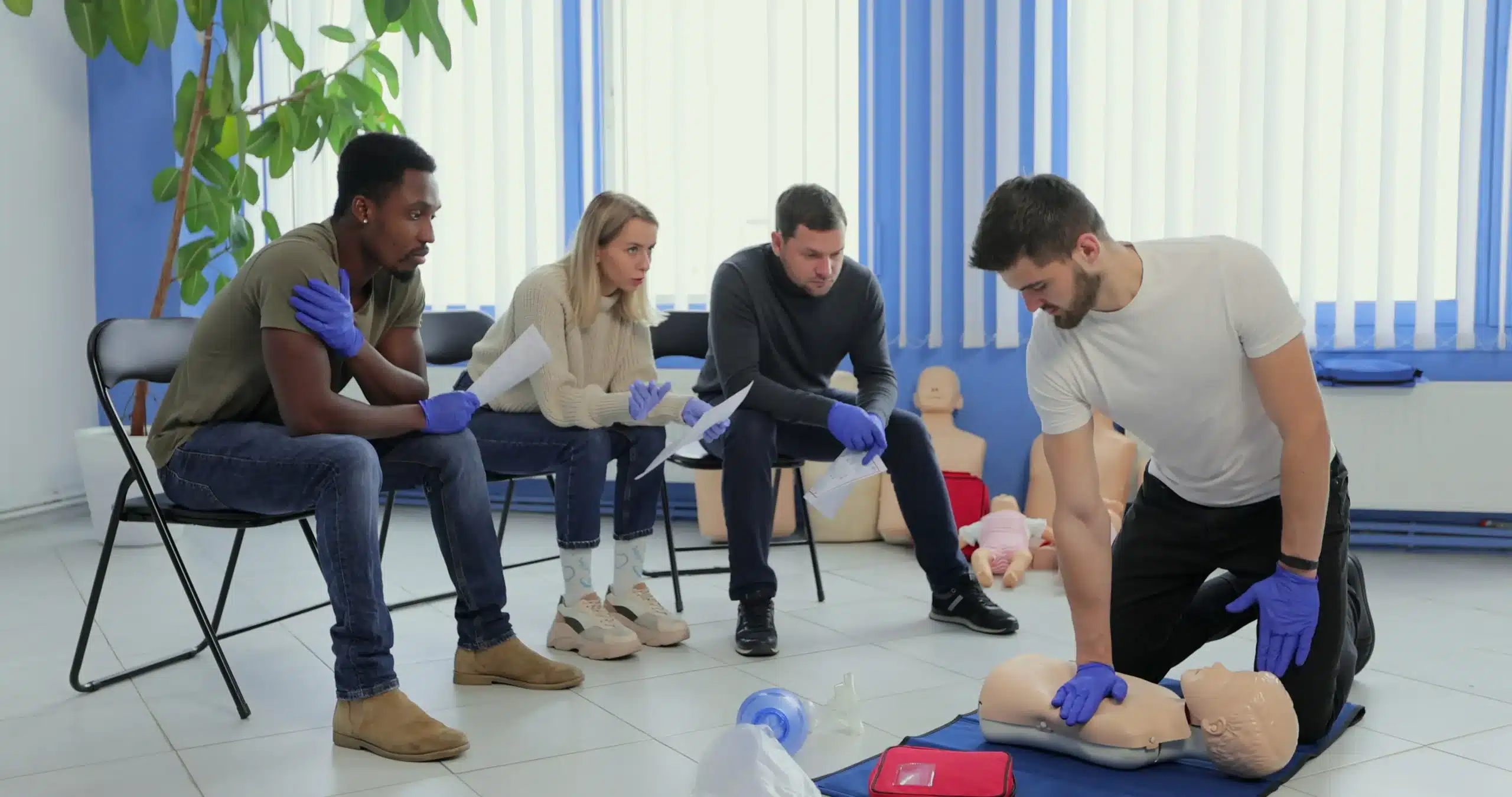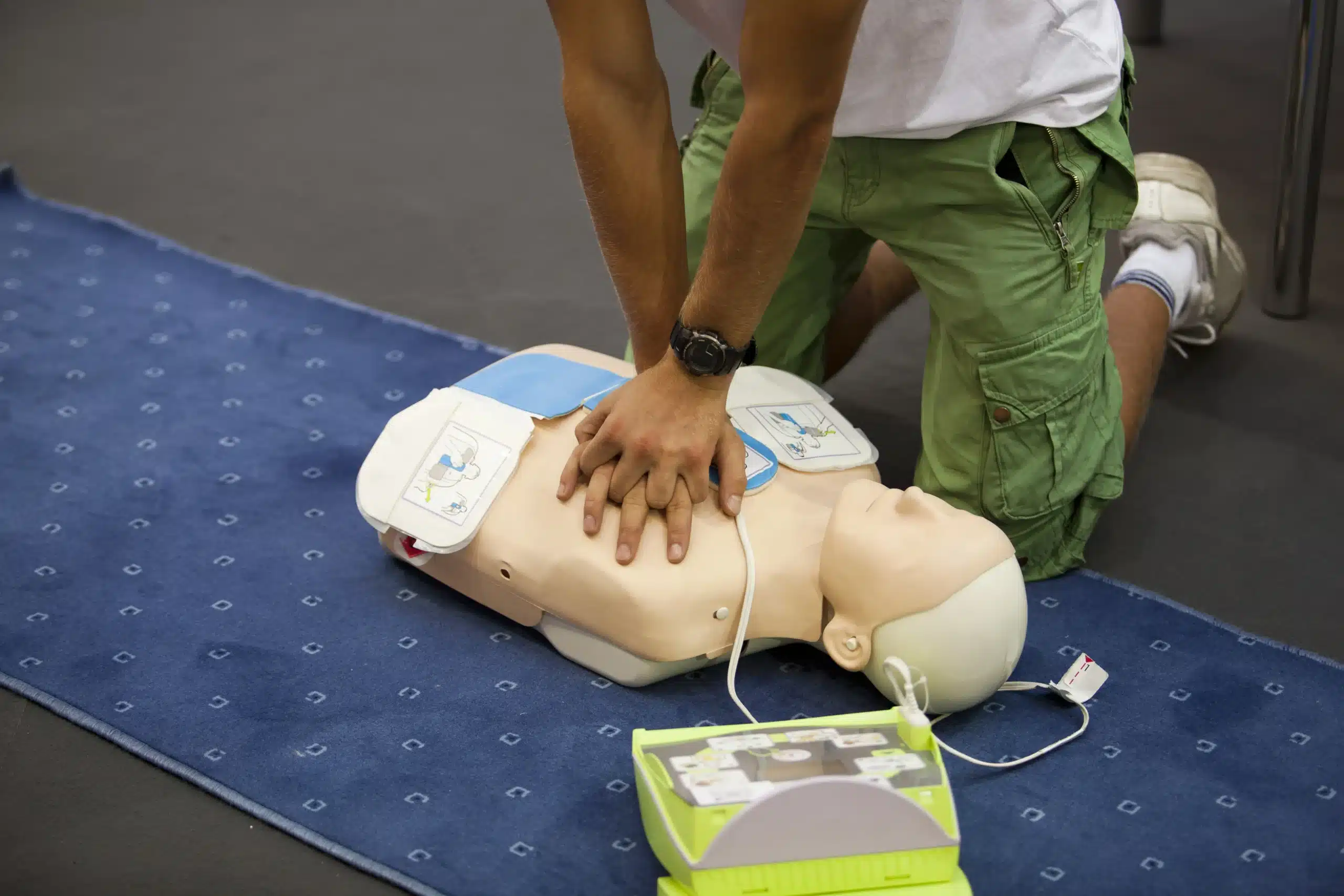Working in healthcare in Benicia means being prepared for anything. BLS for healthcare providers in Benicia is your first line of defense in medical emergencies. But what exactly does BLS certification entail, and why is it so crucial for healthcare professionals? This comprehensive guide will walk you through the ins and outs of BLS, covering everything from the core skills taught in these courses to the value of choosing an AHA-certified program. We’ll explore the various training options available in Benicia, discuss the costs and time commitment involved, and offer practical tips for overcoming common challenges. Whether you’re a seasoned healthcare professional or just starting your career, understanding the importance of BLS for healthcare providers in Benicia is paramount.
Key Takeaways
- BLS Certification is a Must-Have: It equips healthcare providers with essential life-saving skills (CPR, AED use, and airway management) for effective emergency response. Stay current with the latest guidelines through regular training.
- Finding the Right Course is Easier Than You Think: Consider cost, schedule, and location when choosing a provider. Explore in-person, online, or blended learning options. Martinez CPR Classes offers flexible scheduling and a low-price guarantee.
- Maintain Your Skills for Maximum Impact: Regular practice, continuing education, and staying updated on guidelines ensure you’re always prepared. This benefits both you and your patients.
What is BLS for Healthcare Providers?
BLS (Basic Life Support) certification is a vital credential for healthcare professionals. It equips you with the skills to respond effectively to life-threatening emergencies, including cardiac arrest, respiratory distress, and choking. BLS covers core techniques like CPR (cardiopulmonary resuscitation), AED (automated external defibrillator) use, and airway management. These skills are essential for maintaining oxygenation and circulation until advanced medical help arrives. Think of BLS as your foundational toolkit for responding to sudden, critical situations. It empowers you to provide immediate care, potentially saving lives. For healthcare providers, BLS certification isn’t just a qualification—it’s a responsibility.
Core BLS Skills
BLS training focuses on practical skills you can apply confidently under pressure. High-quality BLS training emphasizes performing effective chest compressions and delivering rescue breaths. You’ll learn how to recognize the signs of cardiac arrest and respiratory distress, how to open a patient’s airway, and how to use an AED safely and correctly. Beyond the technical skills, BLS training also covers teamwork, communication, and the critical thinking required to assess and manage emergency situations. This comprehensive approach ensures you’re not just learning steps, but developing the judgment to apply them effectively.
Why BLS Matters in Benicia
BLS certification is often a prerequisite for healthcare jobs, and maintaining current certification demonstrates your commitment to patient safety. Regular BLS training and recertification keeps you up-to-date on the latest guidelines and best practices in emergency care. In Benicia, as in any community, having trained healthcare professionals readily available can significantly impact patient outcomes in emergencies. Whether you’re in a hospital, clinic, or other healthcare setting, your BLS skills can create a safer environment for both patients and colleagues. Knowing how to respond effectively in a crisis brings confidence and peace of mind to everyone around you. It establishes you as a capable and prepared healthcare provider, ready to act when it matters most.
Find BLS Certification in Benicia
If you’re searching for BLS certification in Benicia, you have several convenient options. Let’s explore the different training formats available to help you find the best fit.
In-Person Training
The Benicia CPR Training Center offers various American Heart Association (AHA) certified CPR and advanced life support courses. In-person training is ideal for those who thrive in a traditional classroom setting and prefer face-to-face instruction. These courses provide a structured learning environment with hands-on practice and direct interaction with instructors, often healthcare providers, in a low-stress environment.
Online & Hybrid Courses
For more flexibility, consider online and hybrid courses. Several providers in and around Benicia offer blended learning formats, combining online modules with in-person skills sessions. Vallejo CPR Classes, CPR Education, and Safety Training Seminars are a few examples. The American Red Cross also offers a blended learning BLS course, allowing you to complete the coursework online at your own pace before attending an in-person skills check-off.
Martinez CPR Classes
Martinez CPR Classes offers AHA-certified BLS training with flexible scheduling options, including evening and weekend classes. As a woman-owned AHA Training Center, they offer high-quality instruction and a supportive learning environment. Their convenient location in Martinez serves Benicia and Port Chicago. They also provide blended learning formats and a low price guarantee, making them a great option for those seeking local, affordable, high-quality BLS training.
Understand BLS Course Structure
Knowing what to expect in your BLS training can help you feel prepared and confident. A typical BLS course covers essential life-saving techniques and follows a structured format to ensure comprehensive learning.
Key Training Components
BLS certification equips healthcare providers with the skills to respond to medical emergencies effectively. Core components include CPR, using an automated external defibrillator (AED), and providing basic airway management. These skills are crucial for maintaining oxygenation and circulation until more advanced medical help arrives. High-quality BLS training emphasizes early recognition and intervention for respiratory and cardiac arrest.
Hands-On Practice
BLS courses aren’t just lectures. They involve significant hands-on practice using manikins. This practical training allows you to develop muscle memory and gain confidence in performing CPR, using an AED, and managing airways. Most courses last between four and six hours, providing ample time for this essential hands-on experience. Martinez CPR Classes offers frequent courses to accommodate your schedule.
Exams
To receive your BLS certification, you’ll need to demonstrate your knowledge and skills through a written exam and a practical skills assessment. The written exam tests your understanding of BLS principles and procedures. The skills assessment evaluates your ability to perform CPR, use an AED, and provide airway management in a simulated emergency. Your BLS certification is typically valid for two years, after which you’ll need to recertify.
BLS Certification: Cost & Value
Getting BLS certified is an investment in your career and the community. Understanding the associated costs and the value it brings helps you make informed decisions. Let’s break down the typical pricing for BLS courses in Benicia and explore ways to make training more affordable.
Benicia Course Pricing
BLS courses in Benicia, CA, typically range from $70 to $90. This fee usually covers the comprehensive training program, including instruction, materials, skills practice, and testing. A BLS course typically lasts between four and six hours and involves hands-on practice with manikins, giving you practical experience. Your BLS certification will be valid for two years, after which you’ll need to recertify.
Group Discounts & Special Rates
If you’re training with a group, ask about discounts. Many providers, including Martinez CPR Classes, offer reduced rates for group and corporate on-site training. This can significantly lower the per-person cost, making group training budget-friendly for organizations. Plus, flexible scheduling options for group training can make coordinating everyone’s schedules easier.
Low Price Guarantee at Martinez CPR Classes
At Martinez CPR Classes, we believe that high-quality BLS training should be accessible. We offer a low price guarantee, ensuring you receive excellent value. We also provide flexible scheduling, including evening and weekend classes, and blended learning formats. This allows students to complete some coursework online at their own pace while attending in-person sessions for hands-on skills practice. Serving Martinez, Port Chicago, and Benicia, we make finding a convenient class easy.
BLS Certification: Duration & Renewal
Certification Period
BLS certification courses typically run between four and six hours. This timeframe includes hands-on practice and instruction. You’ll work with manikins to get comfortable with the techniques, and your instructor will guide you through the proper procedures. Plan for a written exam and a skills assessment—you’ll need to pass both to receive your BLS for Healthcare Providers certification. Your BLS certification is valid for two years.
Renew Your Certification
Renewal courses are required every two years to maintain your BLS certification. These refresher courses cover updated guidelines and techniques to keep your skills sharp. Continuing education opportunities can further enhance your knowledge of emergency medical care. Check with your employer or licensing authority for specific renewal requirements.
Timely Renewal: Why It Matters
Staying current with your BLS certification is critical for healthcare professionals. Regular training ensures you’re up-to-date on the latest guidelines and techniques for emergency medical care. This commitment to ongoing learning benefits both you and your patients. Many healthcare facilities and licensing authorities require regular BLS certification for employment and professional practice. Renewing your certification promptly demonstrates your dedication to providing high-quality patient care and fulfills essential requirements for your career.
Choose AHA-Certified BLS
As a healthcare provider, your skills and knowledge can make a real difference in critical moments. Choosing the right Basic Life Support (BLS) certification is a crucial step in preparing yourself to handle medical emergencies effectively. This section explains why AHA-certified BLS training stands out.
AHA Certification Benefits
BLS certification, especially from the American Heart Association (AHA), equips you with the essential skills to respond confidently during emergencies. These skills include CPR, using an automated external defibrillator (AED), and providing basic airway management. AHA-certified BLS training follows the latest evidence-based guidelines, ensuring you’re learning the most up-to-date and effective techniques. This comprehensive training empowers you to act swiftly and make informed decisions in life-threatening situations, ultimately improving patient outcomes. It’s about more than just a certificate—it’s about gaining the confidence and competence to provide high-quality care when it matters most.
AHA vs. Other Certifications
While various organizations offer BLS certification, the AHA certification is widely recognized and often preferred, especially in healthcare settings. AHA BLS is designed for healthcare professionals and first responders, going beyond basic CPR to include advanced techniques for managing cardiac arrest, respiratory distress, and airway obstructions. This specialized training is often a job requirement for healthcare providers. By choosing AHA certification, you demonstrate a commitment to the highest standards of patient care and align yourself with the leading authority in resuscitation science. Regular training and recertification through the AHA ensure you stay current with evolving best practices and maintain your skills at the highest level. This ongoing commitment to professional development is crucial for providing the best possible care.
AHA Certification in Benicia
Finding a convenient and reputable AHA-certified BLS training center near you is essential. Martinez CPR Classes offers high-quality AHA-certified courses in nearby Martinez, serving Benicia and surrounding areas. As a woman-owned AHA Training Center, they provide a supportive and professional learning environment. They offer a range of courses, including BLS, ACLS, PALS, and First Aid, making it a one-stop shop for your certification needs. Investing in AHA-certified BLS training with a trusted provider like Martinez CPR Classes is an investment in your career and the well-being of your patients. You can find more information on course schedules, pricing, and registration on their website.
Prepare for Your BLS Course
Getting ready for your BLS course can make a real difference in how much you get out of the training. Knowing what to expect and how to prepare beforehand can ease any pre-class jitters and set you up for success.
Pre-Course Prep & Study Tips
Before your BLS for Healthcare Providers course, familiarize yourself with the core concepts. A little pre-course study can go a long way. Review materials on CPR, AED use, and airway management techniques. Vallejo CPR Classes offers a helpful overview of BLS for Healthcare Providers, covering these essential skills. Most courses last between four and six hours and involve hands-on practice, so prepare for a session that’s both informative and active. You’ll be learning and practicing with manikins, giving you a chance to apply the techniques you’re learning in a safe environment. Remember, BLS certification requires passing both a written exam and a skills assessment, so brushing up on the basics beforehand will be beneficial.
Training Day Expectations
On the day of your training, come prepared to learn and participate actively. BLS training equips you with the skills and confidence to perform effective chest compressions and rescue breaths, providing crucial support until professional medical help arrives. The training covers key program components, including single and multiple responder CPR and AED use. These skills are fundamental for responding effectively to medical emergencies. The American Red Cross provides further details on BLS program content. Care Learning emphasizes the importance of BLS training and how it empowers individuals to make a difference in critical moments.
BLS Training Myths
Let’s clear up some common misconceptions about BLS training. One myth is that it’s only for doctors and nurses. The truth is, BLS skills are valuable for anyone. Emergencies can happen anytime, anywhere, and having these skills can make a significant difference. Nerdbot highlights why BLS certification is important for non-medical professionals, emphasizing the value of preparedness in any workplace. Another misconception is that BLS training is overly time-consuming or complex. American Health Training addresses these and other myths, clarifying that BLS training is accessible and beneficial for a wide range of individuals. Don’t let these misconceptions hold you back from gaining these life-saving skills.
Maintain Your BLS Skills
After earning your BLS certification, regular practice, continuing education, and staying up-to-date on the latest guidelines are crucial. This ensures you’re always prepared to respond effectively in emergencies. Your skills can make a real difference.
Practice Regularly
BLS training equips you with the skills to act quickly and effectively in life-threatening situations. Whether you’re a healthcare professional, teacher, caregiver, or anyone who wants to be prepared, BLS training is a vital skill. It empowers you to potentially save lives during cardiac emergencies, respiratory distress, or choking incidents. Regular practice is key to maintaining muscle memory and confidence in your abilities. Consider setting aside time each month to review key skills like chest compressions, rescue breaths, and using an AED. Even practicing with a friend or family member can reinforce these life-saving techniques.
Continuing Education
The medical field is constantly evolving. Continuing education ensures you stay updated on the latest techniques and guidelines, and advancements in emergency medical care. This is especially important for healthcare professionals who need to meet specific requirements for their roles. Engaging in regular training and recertification demonstrates your commitment to providing high-quality patient care. Look for advanced courses, workshops, and online resources to expand your knowledge and refine your skills. BLS training is often a requirement for healthcare professionals.
Stay Updated on Guidelines
Emergency care guidelines are periodically updated to reflect the latest research and best practices. Staying informed about these changes is essential for providing effective care. The American Heart Association regularly publishes updated guidelines for BLS. Make it a habit to review these updates and incorporate them into your practice. This ensures your techniques align with current recommendations, ultimately improving patient outcomes. BLS certification equips individuals with the knowledge and skills to respond effectively in emergency situations. It’s especially important for healthcare and public safety professionals.
Find the Right BLS Course in Benicia
If you’re a healthcare provider in Benicia, BLS certification is essential for responding effectively to medical emergencies. Finding the right course involves considering a few key factors to ensure it aligns with your schedule, learning style, and budget.
Choosing a Provider: What to Consider
BLS certification equips healthcare professionals with life-saving skills, including CPR, AED use, and airway management. When selecting a provider, look for AHA-certified courses that cover these core components. Consider factors like instructor experience, class size, and the overall reputation of the training center. A smaller class size can often provide more personalized attention and feedback. Also, think about the location and schedule—choose a provider that offers convenient options for your busy lifestyle.
Local Training Centers
Several excellent training centers offer BLS certification in and around Benicia. Here are a few options:
Martinez CPR Classes
Martinez CPR Classes offers a range of AHA-certified courses, including BLS, ACLS, and PALS. They provide flexible scheduling options, including evening and weekend classes, making it easier to fit training into your schedule. They also offer discounts for group classes, which can be a great option for colleagues wanting to certify together.
Vallejo CPR Classes
Vallejo CPR Classes provides various BLS training options in and around Benicia. They offer different formats, including online, in-person, and blended learning, catering to diverse learning preferences.
Other Local Providers
Explore other local providers like Safety Training Seminars, a woman-owned AHA Training Center offering high-quality BLS, ACLS, PALS, CPR, and First-aid courses in Martinez. Researching multiple providers ensures you find the best fit for your needs.
Flexible Training Formats
BLS courses are available in various formats to accommodate different learning styles and schedules.
-
In-Person Training: Traditional in-person classes offer hands-on practice and direct interaction with instructors. This format is ideal for those who prefer a structured learning environment and benefit from face-to-face instruction.
-
Online Courses: Online BLS courses provide flexibility for those with busy schedules or limited access to in-person training. You can complete the coursework at your own pace and from any location with internet access.
-
Blended Learning: Blended learning combines online modules with in-person skills sessions. This format allows you to learn the theoretical concepts online and then practice your skills in a hands-on setting. It offers the best of both worlds, providing flexibility and practical application.
Overcome BLS Certification Challenges
Getting your BLS certification is a smart move, but I know it can feel like a hurdle. Between busy schedules, the cost of training, and balancing work, it’s understandable to feel a little overwhelmed. Let’s break down these common challenges and look at some solutions.
Time Constraints
We’re all busy. Finding time for training can feel impossible, especially for healthcare professionals working long shifts. Look for BLS providers who offer flexible scheduling. Martinez CPR Classes offers evening and weekend classes, so you can find a time that works around your existing commitments. Also, consider blended learning formats that combine online coursework with shorter in-person skills sessions. This approach can significantly reduce the overall time commitment.
Managing Costs
BLS certification does come with a price tag (generally around $75), but think of it as an investment in your career and the safety of your patients. Group discounts are often available, which can be a great option if you can get a few colleagues to sign up with you. Also, check if your employer offers any reimbursement or professional development funding to help cover the cost. Martinez CPR Classes has a low price guarantee, so you can be confident you’re getting a good deal.
Balancing Work & Training
It’s tough to juggle work and training, but remember that BLS certification is a valuable asset. It demonstrates your commitment to providing high-quality care and ensures you’re equipped to handle emergencies effectively. Talk to your supervisor about scheduling adjustments or using some of your professional development time for the course. The peace of mind that comes with knowing you can respond confidently in a crisis is invaluable, both for you and your patients. Having trained professionals around creates a safer environment for everyone, as highlighted in this article on the importance of BLS. BLS training is often the first response to a cardiac or respiratory arrest, making it a crucial skill for healthcare providers, as explained by American Health Training.
Related Articles
- BLS HeartCode Benicia: A Certification Guide
- BLS Certification in Port Chicago: Your Guide – Martinez CPR Classes
- BLS HeartCode Martinez: Your Certification Guide – Martinez CPR Classes
- CPR Certification in Benicia: Your Complete Guide – Martinez CPR Classes
- BLS Courses in Port Chicago: Your Complete Guide – Martinez CPR Classes
Frequently Asked Questions
How often do I need to renew my BLS certification? BLS certification for healthcare providers is typically valid for two years. Recertification is required every two years to ensure your skills and knowledge are up-to-date.
What’s the difference between BLS and CPR? CPR (Cardiopulmonary Resuscitation) is a specific technique used within BLS (Basic Life Support). BLS encompasses a broader range of skills, including CPR, AED use, and airway management, providing a more comprehensive approach to emergency care. Think of CPR as one tool within the larger BLS toolkit.
What if I have a busy schedule and can’t attend a traditional BLS course? Many providers offer flexible training options, such as blended learning (online coursework combined with in-person skills sessions) and weekend or evening classes. This allows you to fit the training into your schedule more easily. Check with providers like Martinez CPR Classes for their flexible scheduling options.
Why should I choose AHA-certified BLS training? The American Heart Association (AHA) is a widely respected authority in resuscitation science. AHA-certified BLS training ensures you’re learning the most up-to-date, evidence-based techniques, giving you the confidence to respond effectively in emergencies. It’s often a preferred certification for healthcare employers.
How much does BLS certification cost, and are there any discounts available? BLS course costs vary but typically range from $70 to $90 in the Benicia area. Many providers offer discounts for group training, so check with your employer or training center about group rates. Martinez CPR Classes also offers a low price guarantee.
